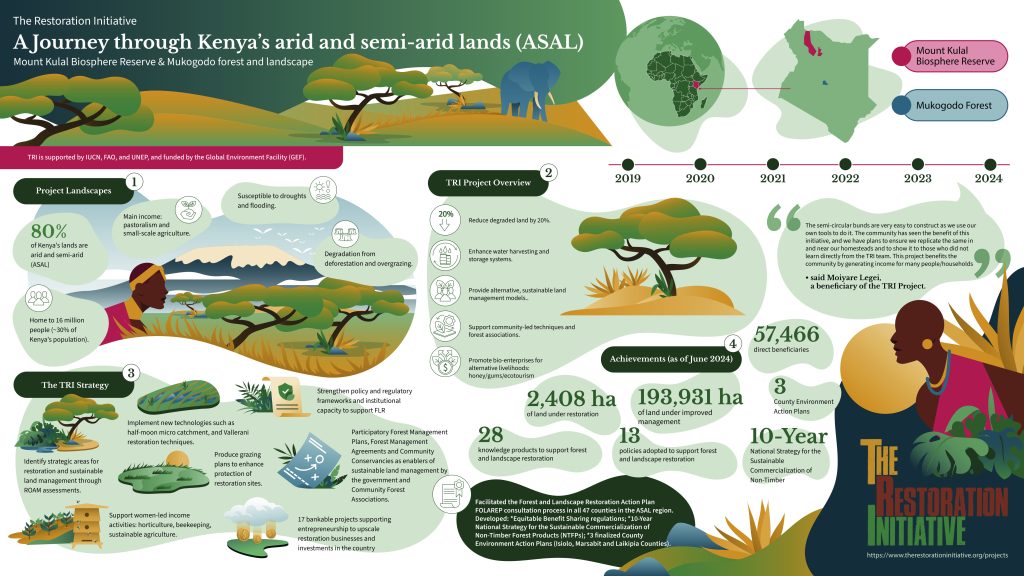Forest and Landscape Restoration: Valuable insights from The Restoration Initiative on the ground
In a recent webinar hosted by The Restoration Initiative (TRI), the power of collaboration and shared learning was evident, emphasizing their crucial roles in advancing forest and landscape restoration. Since its inception in 2018, TRI has united ten projects across nine countries, partnering with three Global Environment Facility agencies—the International Union for Conservation of Nature (IUCN), the Food and Agriculture Organization (FAO), and the United Nations Environment Programme (UNEP)—as well as governments and strategic partners to tackle barriers to restoring degraded landscapes in support of the Bonn Challenge.
During TRI’s recent webinar, teams representing the diverse in-country projects – situated in Cameroon, the Central African Republic, China, the Democratic Republic of the Congo, Guinea-Bissau, Kenya ASAL, Kenya Tana Delta, Pakistan, São Tomé and Príncipe, and the United Republic of Tanzania – shared practical experiences and insights on best practices tailored to their specific contexts and challenges. This gathering showcased a wealth of perspectives, providing valuable insights into TRI’s impactful initiatives.
Engaging TRI Practitioners
Hearing the experiences and challenges faced by project managers and teams on the ground is invaluable to support the success and sustainability of restoration efforts under TRI. These teams have been at the forefront of implementing restoration activities, navigating complex ecological, social, and economic landscapes. Their insights provided crucial lessons about what works and what doesn’t in real-world settings, helping to refine strategies and approaches to restoration.
Understanding their challenges allows for the identification of barriers that may hinder progress, such as resource constraints, community engagement issues, or policy gaps.… Read the rest
